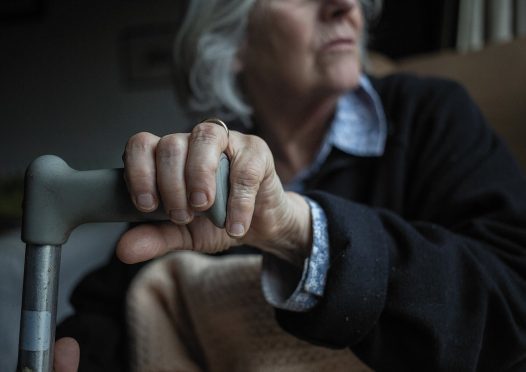Hundreds of people in the Highlands could be left without their crucial care service as union bosses accused the “bullying” NHS of forcing them towards industrial action.
The GMB union, which represents at least 350 of the region’s 900 specialist staff, last night warned it was taking legal advice over changes to carers’ contracts.
Union officials believe the move, which will transfer workers from council contracts to NHS ones, will lead to workers doing five jobs rolled into one, and will dramatically decrease their mileage allowance – effectively “subsidising the NHS”.
GMB regional officer Liz Gordon said: “I’m happy to take this all the way if the NHS are going to insist on imposing this. I’m meeting the lawyers next week to go over the legal case.
“The NHS have refused to recognise the GMB’s collective bargaining rights. They are bullying and coercing staff into signing away their legal rights and they are breaching Tupe legislation.
“Because of this, the GMB will start the industrial dispute process. This means we could be asking our members to take industrial action.”
Service user Debbie Michie, a double amputee who has four home care visits a day, described the potential loss of the service as “pretty scary”.
Since they moved under the NHS umbrella five years ago, staff have so far continued to work to Highland Council terms and conditions. But NHS Highland recently engaged in talks to pave the way for a switch under “transfer of undertakings protection of employment (Tupe)” regulations.
The law should guarantee parity – but the GMB claims the proposals conflict with that.
Agreement has been reached with Unison union members and NHS Highland has given staff until July 21 to transfer or to email the board to arrange “one-to-one or group meetings” to discuss any concerns.
According to Ms Gordon, the job description is a composite of five roles that “will give the employer the right to ask home carers to undertake tasks currently undertaken by others – with no right to decline.”
She also dismissed the health board’s talk of career progression arguing that “there’s nowhere to progress to”.
A spokesman for NHS Highland said: “Project redesign groups have been meeting to consider the changes to staff’s terms and conditions for a considerable period of time.
“As the redesign has included local initiatives based on the needs of the population, this has meant that changing staff terms and conditions and their work practice has progressed at a different pace throughout these units.
“However, NHS Highland is confident the partnerships we now have with the unions has led to very positive change.”
Highland Council leader Margaret Davidson said she was “disturbed that the most vulnerable people” could suffer additional hardship.
Highlands and Islands Labour MSP Rhoda Grant urged the two sides to meet to thrash out an amicable solution.
She said: “Industrial action must be avoided if at all possible. Too often, home care staff are taken for granted and their work undervalued. It’s for all of us to demonstrate the value we place on this work by providing decent conditions of service and career progression.
“While I can understand that NHS Highland would want to move them onto NHS contracts this should not be at the detriment of staff.
“We need to ensure that care of the elderly, in all settings, is excellent and the best way to do this is to value those who provide it.”
Adam Palmer of the Unison union which represents the bulk of the region’s other home care staff, said: “For some staff there may be pay increases and there’s a small additional holiday entitlement.
“We’ve also received repeated assurances from management that no member of staff will be asked to take on tasks they are not confident to do or fully trained for.”
